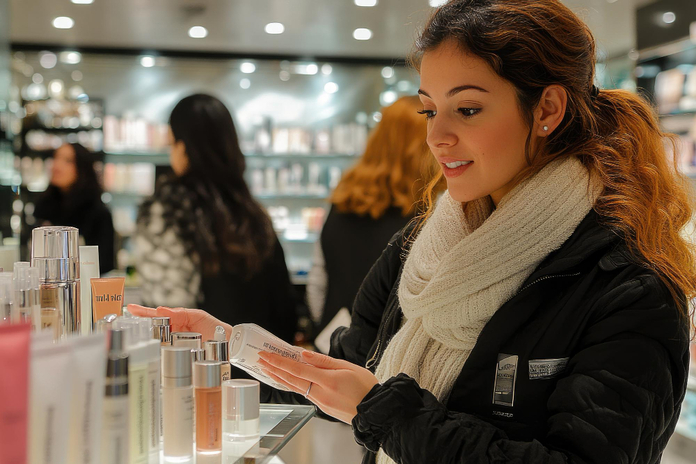Ulta Beauty (NASDAQ:ULTA), a leading retailer in the cosmetics industry, has lowered its annual sales and profit forecasts, citing a decline in demand for higher-priced cosmetics and fragrances. This decision comes as consumers, grappling with high living costs, have begun cutting back on non-essential luxury items, including beauty products. The announcement led to a 7% drop in Ulta Beauty’s shares in extended trading, adding to the company’s 22% decline in stock value this year.
Slowing Demand for Beauty Products
The post-pandemic surge in demand for beauty products, which initially drove strong sales for retailers like Ulta Beauty, appears to be losing steam. As pandemic-related restrictions were lifted, many consumers indulged in affordable luxury items, particularly in the beauty sector. However, with the rising cost of living, customers are now scaling back on discretionary spending, including cosmetics and skincare products.
In the second quarter, Ulta Beauty reported a 1.2% decline in comparable sales, driven by a 1.8% decrease in transactions. This slowdown in customer activity is reflected in data from Placer.ai, which indicates a moderation in foot traffic at Ulta Beauty stores across the United States in recent months. The retailer’s quarterly net sales rose by roughly 1% to $2.55 billion, missing the expectations of $2.62 billion set by LSEG. Additionally, Ulta Beauty earned $5.30 per share, falling short of analysts’ expectations of $5.46 per share.
A Cautious Outlook for the Year
Ulta Beauty’s CEO, Dave Kimbell, acknowledged that the company’s second-quarter performance did not meet expectations. In light of the current retail environment, Kimbell announced a more cautious outlook for the remainder of the year, adjusting the company’s annual forecasts accordingly.
Ulta Beauty now expects its annual net sales to range between $11 billion and $11.20 billion, down from the previous forecast of $11.5 billion to $11.6 billion. Similarly, the company has revised its annual earnings per share expectations to between $22.60 and $23.50, compared to the earlier estimate of $25.20 to $26.00.
The revised forecasts reflect the broader challenges facing the beauty industry, particularly in the luxury segment. Estee Lauder (NYSE:EL), the maker of MAC lipstick, also lowered its annual profit and sales expectations, citing reduced demand for its luxury beauty products, especially in the key China market. This trend highlights the global nature of the current slowdown in consumer spending on high-end cosmetics.
Challenges in the Beauty Retail Sector
Ulta Beauty’s struggles are indicative of a broader trend in the beauty retail sector. As consumers become more selective with their spending, retailers are finding it increasingly difficult to maintain sales growth, particularly in higher-priced product categories. The challenges are compounded by increased competition and a shift in consumer preferences toward more affordable options.
The beauty industry, which had seen a significant boost during the pandemic as consumers invested in self-care products, is now facing a period of adjustment. Retailers like Ulta Beauty must navigate a more cautious consumer base, which could mean reevaluating pricing strategies, product offerings, and marketing approaches to better align with current market conditions.
Looking Ahead: Strategic Adjustments
As Ulta Beauty adjusts to this new retail landscape, the company will need to focus on strategies that can help stabilize its performance. This may include expanding its product range to include more affordable options, enhancing in-store experiences to drive foot traffic, and leveraging its loyalty programs to retain and attract customers.
The beauty retailer’s ability to adapt to these changing market dynamics will be crucial in determining its success in the coming quarters. While the current outlook may be challenging, Ulta Beauty’s strong brand presence and wide product assortment provide a solid foundation for navigating this period of uncertainty.
Conclusion: Navigating a Tough Retail Environment
Ulta Beauty’s recent forecast cut underscores the difficulties facing the luxury beauty segment as consumer spending patterns shift. With slowing demand and heightened competition, the retailer will need to make strategic adjustments to maintain its market position. As the beauty industry continues to evolve, Ulta Beauty’s ability to adapt will be key to its long-term success.
Featured Image: Freepik









